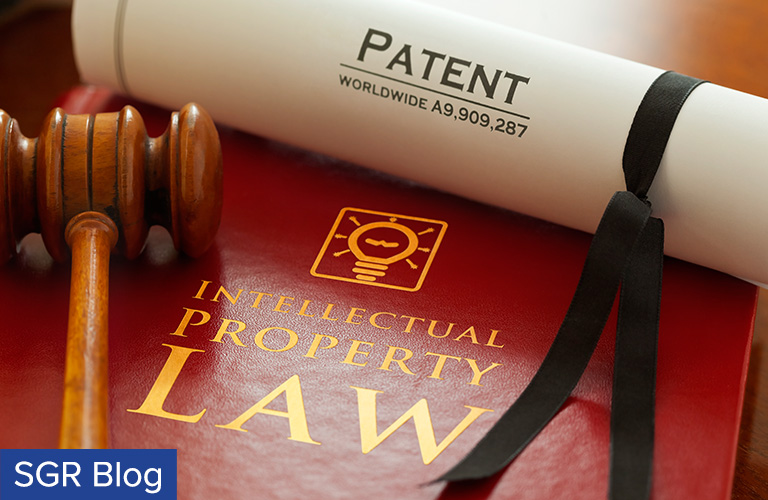
Last month, the United States Court of Appeals for the Federal Circuit (CAFC) issued an opinion in the case of Samsung Electronics America, Inc. v Prisua Engineering Corp., case number 2019-1169, again holding that the authority of the Patent Trial and Appeal Board (Board) to institute an inter partes review (IPR) is statutorily limited only to grounds of anticipation and obviousness, under 35 U.S.C. §§ 102 and 103; though further clarifying that the Board also may not expand the scope of a properly instituted IPR to address other patentability requirements beyond the statutorily authorized grounds.
The Leahy-Smith America Invents Act (AIA), Pub. L. No. 112-29, 125 Stat. 284 (2011) introduced IPR proceedings as a means for patent challengers to seek cancellation of patent claims, though limited such proceedings to challenges based only on grounds under 35 U.S.C. §§ 102 and 103, concerning anticipation and obviousness respectively. 35 U.S.C. § 311(b). Both the Supreme Court and the CAFC have recognized this statutory limit as precluding institution of an IPR based on any grounds other than anticipation and obviousness. See Cuozzo Speed Technologies, LLC v. Lee, 136 S. Ct. 2131, 2141-42 (2016) (“. . . nor does our interpretation enable the agency to act outside its statutory limits by, for example, canceling a patent claim for ‘indefiniteness under § 112″ in inter partes review); and Neptune Generics, LLC v. Eli Lilly & Co., 921 F. 3d 1372, 1378 (Fed. Cir. 2019) (“Congress expressly limited the scope of inter partes review to a subset of grounds that can be raised under 35 U.S.C. §§ 102 & 103.”).
In the instant case, Samsung filed a petition for IPR seeking cancellation of claims 1-4, 8 and 11 of U.S. patent no. 8,650,591 (the ʼ591 Patent) – claims 1 and 11 being independent, and claims 2-4 and 8 each depending from claim 1. Samsung presented four separate grounds with their petition, each addressing an issue of anticipation and/or obviousness. The Board determined that Samsung demonstrated a reasonable likelihood that at least one challenge to claim 11 would succeed, and therefore instituted an IPR to review claim 11. The Board deemed claim 1 to be of indeterminate scope due to issues of indefiniteness, and therefore declined to review any of claims 1-4 and 8. However, prior to the Board reaching a final decision in the IPR, the Supreme Court issued the opinion in SAS Institute Inc. v. Iancu, 138 S. Ct. 1348 (April 24, 2018) holding that when the Board institutes an IPR it must address the patentability of every challenged. SAS, 138 S. Ct. at 1354. Following issuance of the opinion in SAS, the Board modified its institution decision to include a review of all challenged claims 1-4, 8 and 11.
In a final written decision to the IPR, the Board held independent claim 11 invalid as obvious. However, the Board held claims 1-4 and 8 to be of such indefinite scope that the asserted prior art could not be applied to the claims, and the Board therefore held that Samsung had failed to establish that any of claims 1-4 and 8 were unpatentable under any of the asserted anticipation and obviousness grounds.
Samsung appealed the Board’s decision and argued that the Board should have cancelled the claims it found indefinite. While recognizing that the Board is statutorily precluded from instituting an IPR against a claim based on indefiniteness, Samsung argued that the Board may nonetheless cancel an indefinite claim in an IPR that has been properly instituted on a statutorily authorized ground.[1] Samsung argued that several provisions of the IPR statute in fact authorize the Board to cancel indefinite claims during an IPR, and that such authority is also provided with the Board’s inherent authority to perform claim construction in an IPR.
The CAFC dismissed each of Samsung’s arguments, instead maintaining that the Board’s authority to review claims for patentability in an IPR is strictly limited only to issues of anticipation and obviousness. The CAFC clarified that, if in the course of an IPR the Board determines that the scope of one or more claims cannot be ascertained with reasonable certainty, then the proper course of action is to either: (1) decline to institute an IPR, or (2) when indefiniteness issues are present in only certain claims, conclude that a decision cannot be reached on the merits as to whether the petitioner has established unpatentability of those certain claims on the statutorily authorized grounds of anticipation and obviousness.
The CAFC observed that, in cases where the Board cannot reach a final decision as to the patentability of certain claims due to issues of indefiniteness, the estoppel provisions under 35 U.S.C. § 315(e) will not then be invoked, and the Petitioner may then challenge those claims under the same anticipation and obviousness grounds in other proceedings.
Takeaway: Practitioners are reminded that patentability challenges in IPRs are strictly limited to anticipation and obviousness, both as to the grounds for institution and as to issues that may arise during the proceedings. Given this strictly limited scope of IPRs, practitioners should carefully consider if there are other proceedings that might be better suited on a case-by-case basis. As one alternative, post-grant review (PGR) proceedings permit challenges as to any requirement for patentability, though require that a petition for such review be filed within nine months from the grant date of the challenged patent.
[1] Samsung also argued that the Board should have applied the cited prior art against the claims that were deemed indefinite, though that aspect of this case is not addressed in this article.
For more information, contact your Intellectual Property Counsel at Smith, Gambrell & Russell.

